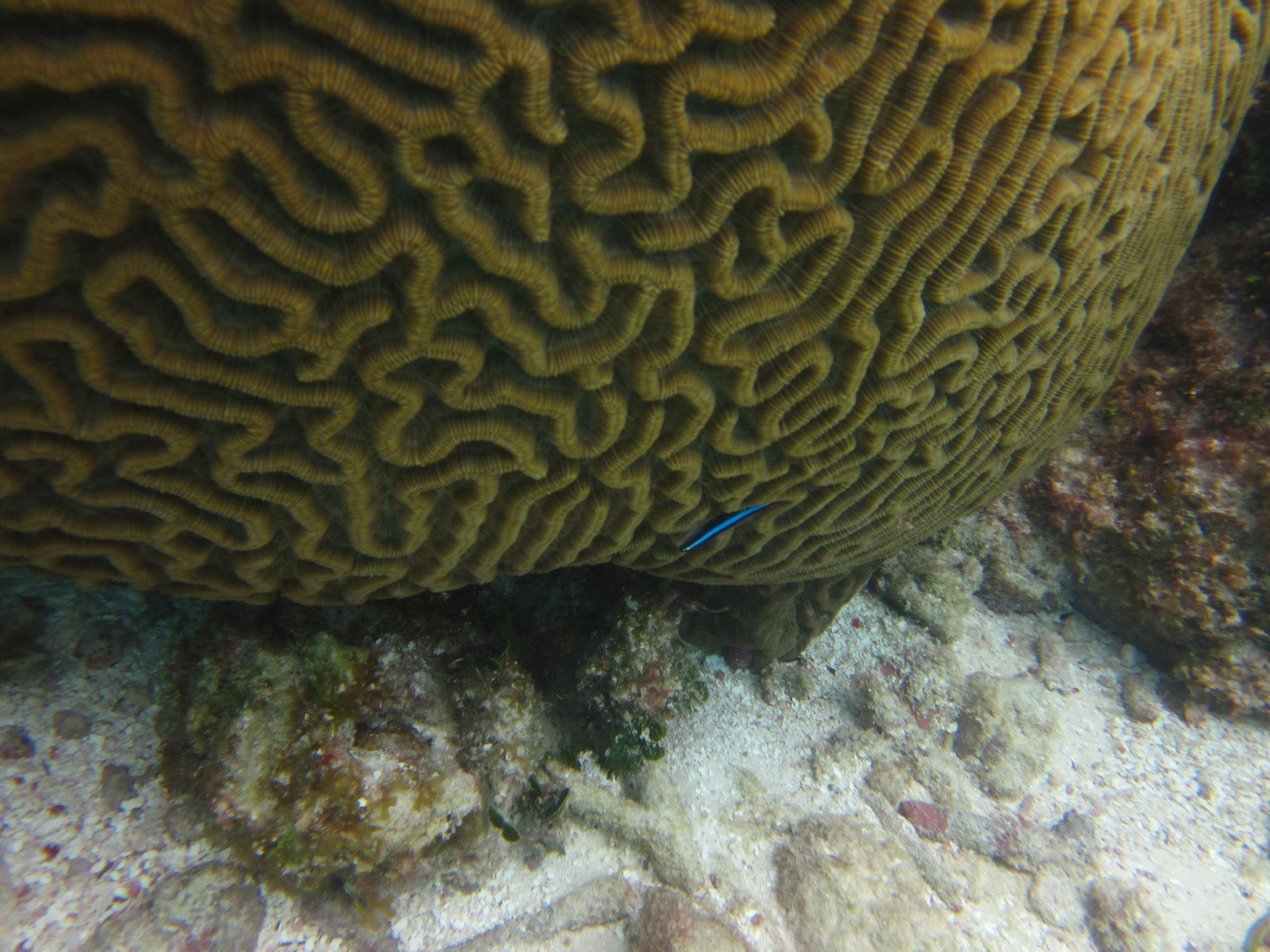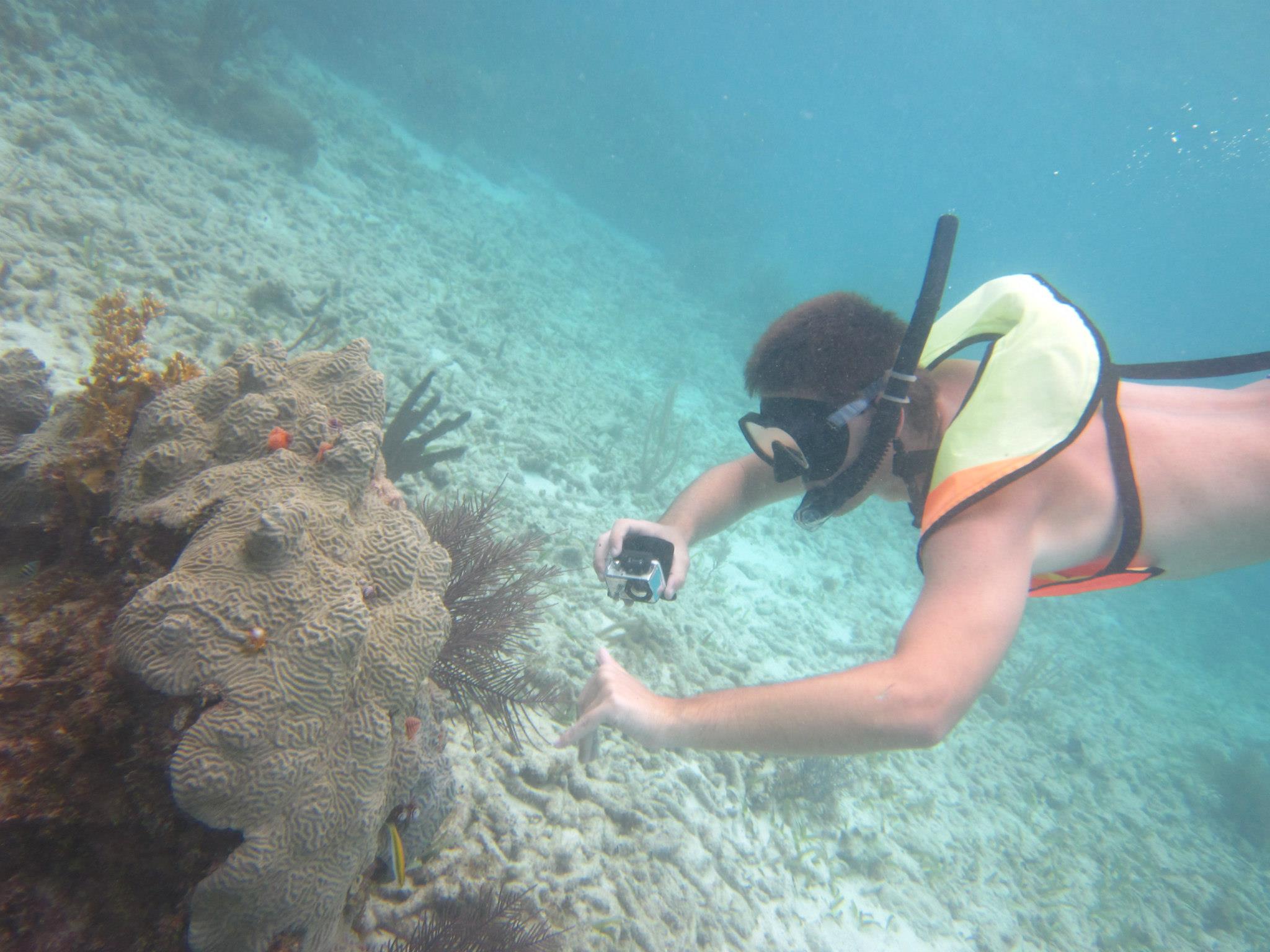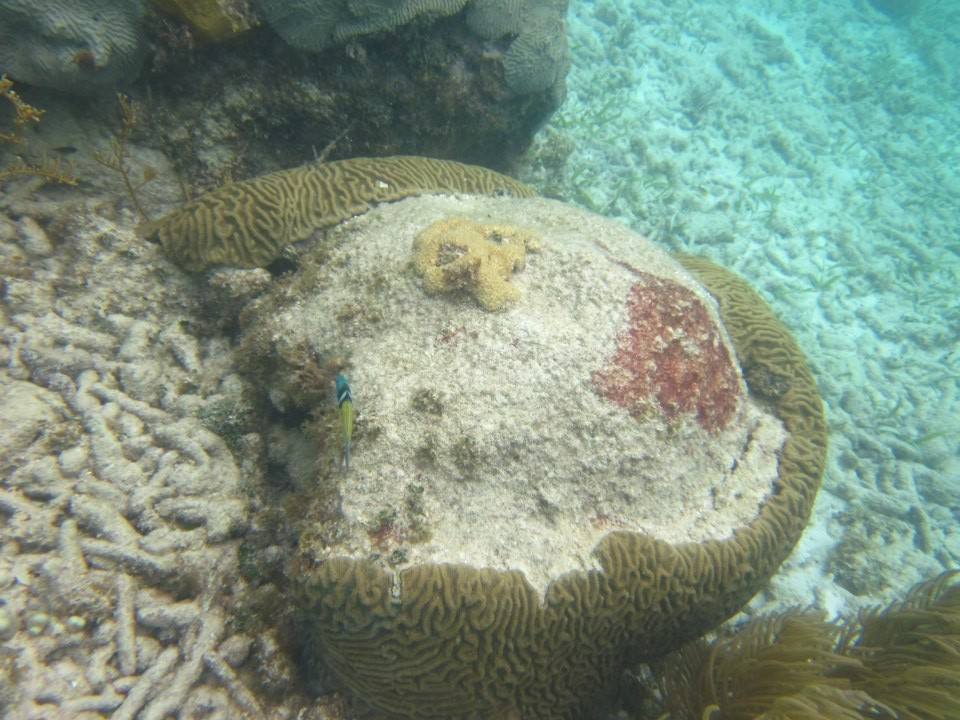Classification
Diploria labyrinthiformis is classified as a stony coral.
Domain: Eukarya
Kingdom:
Animalia
Phylum: Cnidaria (which
includes jellyfish, sea anemones, and corals)
Class: Anthozoa
Order: Scleractinia (which are
stony corals)
Family: Faviidae (brain corals)
Genus: Diploria
Species: D. labyrinthiformis
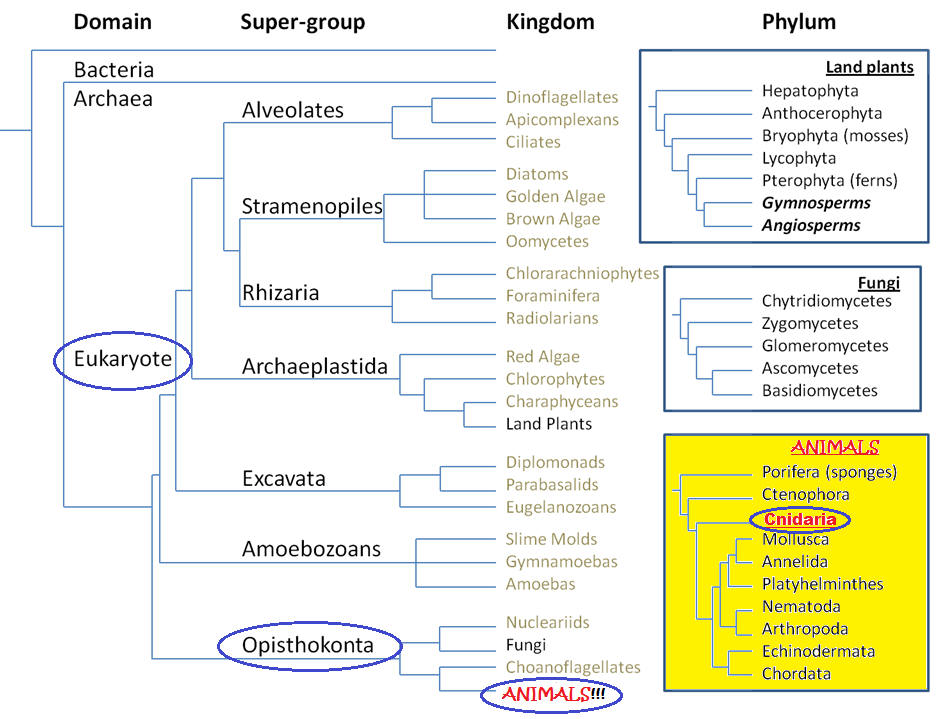
• The domain Eukarya is one of three domains, and includes all organisms that have cell membranes and a cell nucleus.
• The kingdom Animalia includes many various types of multicellular organisms! All of which are Eukaryotic, and include a fixed body plan. Many of these organisms are able to move, especially because they do not contain cell walls. And none of these organisms are able to carry out photosynthesis.
• The phylum Cnidaria includes the jellyfish, sea anemones, polyps, and corals.
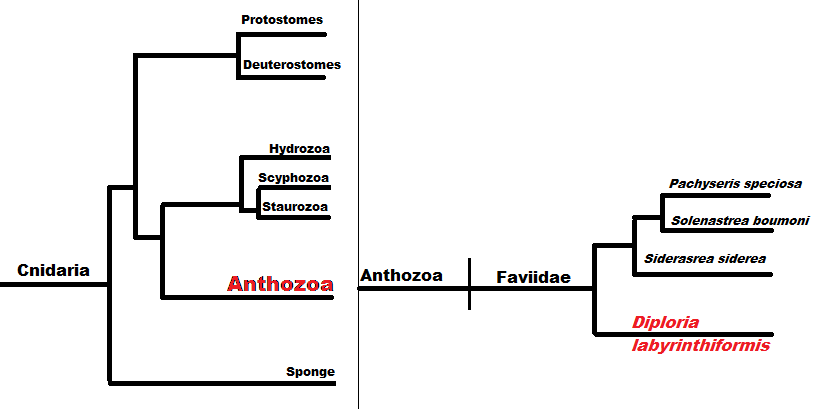
• The class Anthozoa separates some organisms from others in that no medusa stage occurs. The medusa stage is when a polyp fully develops and the body almost completely reverses it's direction. They can reproduce sexually by releasing their sperm and eggs into the water column, or asexually by budding.
• The order Scleractinia includes stony or compound corals, which are corals with a hard skeleton. A lot of these corals are reef builders and found in the shallow waters of the ocean.
• The family Faviidae is the family of Scleractinia. It is amongst the largest family of hard corals. This includes corals that are usually very large and have round circular structures. It comes in second in number of species to the family Acroporidae. It's the fourth largest contributor to reef formations and all its members have a symbiotic relationship with zooxanthellae.
• The genus Diploria includes grooved, knobby, and symmetrical brain coral. They are found in high abundance especially among shallow waters and coral reefs. This genus has a younger mortality rate than other corals, so they are abundant and stick around for a lot longer.
• The species name D. labyrinthiformis stands for the grooved brain coral that is represented on this website. They live in high areas of sediment and rough waves. This is a special species of brain coral that is only found in the Caribbean, Bahamas, southern Florida, and Bermuda.

photos from flickr by: jillhudgins, jayhem, DaseinDesign, mjar81
